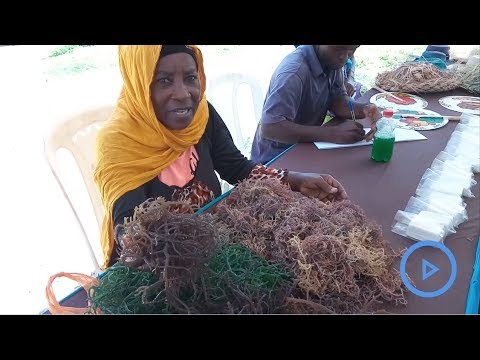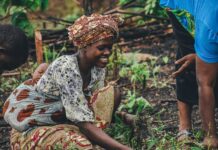By Carole Njoroge
Last week was a very interesting week across the Nairobi city and literally everything within the central business district was coded blue in line with the first ever historic conference “the sustainable blue conference” being hosted in Kenya’s capital, Nairobi.
The country was successful in mobilizing and bringing the world together for a very successful three-day conference that drew over 18,000 delegates represented by close to 170 countries with several heads of state and government all represented in the country.
And across the three day conference there were several issues that were discussed with the hope that the international community would recognize the need to develop our waters in an inclusive and sustainable manner for the benefit of all.
One of the interesting conversations that caught the attention of the conference attendees was “seaweed fashion” that was part of the side events during the three days. I was very curious like most of the people and made a note to visit the exhibition and learn more about this amazing weed. I did ask around what most of the people thought of the weed, and majority of the replies were “they think of seaweed as a nuisance, the smelly stuff that clogs fishermen’s nets, gets tangled in our ankles while swimming in the ocean, and washes up unwanted on the beach; there was nothing positive about this new found gold. This got my curiosity to look for the seaweed farmers along the exhibition stands.

At the far corner, I finally set my eyes on Kibuyuni seaweed farmers log as I etched myself closer making a mental note to ask all the questions, the lady manning the stand was form-able in taking me through the excitement of their new found “blue wealth”. She emphasizes that it all began as an experiment that has slowly turned the fortunes of hundreds of villagers around Kwale county; a group of women have embarked on this rare but sustainable project by engaging in seaweed farming at the ocean.
Dr. Jaquline Uku a senior researcher at Kenya Marine and Fisheries Research Institute (KMFRI) one of the panelists at the conference said, “seaweed farming can be found in other areas like Nyumba Sita, Funzi and Gazi. All these are in the South Coast in Kwale, though at smaller scale than in Kibuyuni “. She also informed the audience that apart from selling the raw seaweed, the women have gone ahead to do value addition on the product with the weeds being used to produce shampoos, soap, face masks among other products. While the soap is made when it’s dry, the shampoo is sold in its wet form.
Fatuma, the lady at the exhibition stand; informed me that “We make the products on our own and sell them to locals and visitors. A bar of soap goes for 400 Ksh while shampoo goes for 500 ksh. The soap has medicinal value and treats various skin conditions. For the shampoo, we boil the seaweed and make gel from it. But for the soap, we grind it into powder”.
Just like the raw seaweeds, there is no permanent or stable market for the value-added products, despite only needing a day to produce. Fatuma was quick to inform me that the Kwale group wasn’t the only group of women gain from the popularity of seaweed farming. Our counterparts across the East Africa block; Zanzibar has historically been the third largest exporters of seaweed in the world, after the Philippines and Indonesia. They mainly export their products to China, Korea, Vietnam, Denmark, Spain and the USA markets.
Fatuma like many of the Kibuyuni seaweed farmers is part of a growing group of women entrepreneurs looking to build businesses around farming seaweed, the long-prized food in Asian countries for its nutritional value, high-protein content and health benefits; in other parts of the world it’s praised for its use in toothpaste, medicine and shampoo such a welcome and very well guarded opportunity I must say.
It is hoped that the blue economy conference has opened up more opportunities to create new business models, farming methods, technologies and designs that incorporate environmental sustainability and ocean biodiversity. With rising global populations and limited space to expand agriculture on land, the Kibuyuni farmers are turning to the sea — and its “weeds” — as a new frontier.














